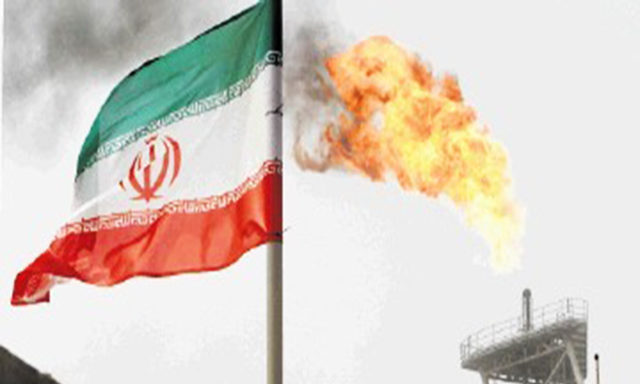
Iran, eager for an end to sanctions that have restricted its oil exports, is shunning its image as OPEC’s price hawk by avoiding calls for an emergency session of the group to support prices
Oil Minister Bijan Namdar Zanganeh consulted with Iranian President Hassan Rouhani about political and economic reasons for the recent price slide, the ministry’s news website Shana reported yesterday.
No emergency meeting of the Organization of Petroleum Exporting Countries is necessary to discuss the collapse, Shana said. Rouhani told Zanganeh to use the “oil diplomacy tool” to try to prevent a further decrease, the state-run Mehr news agency said on October 19 without elaborating.
“They have their wings clipped a bit at the moment because they can’t really produce any more than they do,” Ole Hansen, head of commodity strategy at Saxo Bank A/S, said in an interview in Dubai yesterday. “It’s difficult for them to call for any strict action when they know that when sanctions are lifted, they’re the ones that are going to ramp up production.”
OPEC, supplier of about 40% of the world’s oil, is scheduled to meet November 27 in Vienna to assess production and market conditions. Brent crude, a global benchmark, has tumbled 24% since June and was 17 cents higher at $85.57 a barrel at 1.12pm London time. The decline has prompted speculation that OPEC may cut production to tighten supply. Venezuela has called for the group to convene earlier for an emergency session.
Iran was for years a vocal advocate with Venezuela for reducing OPEC output as a response to falling prices. The Persian Gulf producer isn’t concerned about the latest decrease, Roknoddin Javadi, deputy oil minister and managing director of the National Iranian Oil told Mehr in an October 14 report. Shana today published comments by Narsi Ghorban, whom it called “a senior energy expert,” advising Iran against making “any hasty decision” to lobby other OPEC members for an emergency meeting.
International sanctions imposed on Iran over its nuclear program are choking crude exports, the nation’s main source of income. The government is negotiating with the US and five other world powers over an agreement that would lift the curbs. The countries have set a November 24 deadline for an accord, three days before OPEC meets.
“Iran is constrained by sanctions,” Mehdi Varzi, a former Iranian diplomat and director of Varzi Energy an energy consulting company, said by phone on October 16. “They may have made the calculation that if a nuclear deal can be struck, they will be permitted to increase their exports, so why talk about an OPEC cut right now?”
The International Energy Agency, the Paris-based adviser to industrialized countries, projects that demand for crude this year crude will grow by the least since 2009. OPEC boosted production to a 13-month high in September, pumping 30.66 million barrels a day, the IEA said on October 14.
Saudi Arabia, the world’s biggest exporter, has “appeared determined to defend its market share” in Asia, even at the expense of lower prices, the IEA said. Kuwait’s oil minister said on October 12 there may be “no room” to restore prices by trimming supply.
Oil exports from Iran fell to the lowest level on record in August, according to a release yesterday by the Joint Organisations Data Initiative. Economic growth and energy demand is slowing in China, Iran’s biggest oil buyer, even as the country’s sales are restricted by US and European Union sanctions.
Venezuelan President Nicolas Maduro called for an emergency meeting to address falling prices in a televised broadcast on October 17. Libya wants OPEC to cut output to stem the decline in prices, Mohamed Elharari, a spokesman for Libya’s National Oil said by phone October 17.
Iran’s $400 billion economy shrank more than 7% over the past two years, according to International Monetary Fund data, as sanctions drove oil output to the lowest since 1990 and deterred investment. Growth is set to resume this year, the IMF says. Inflation has slowed to 15%, from a peak of 32% in October 2012, according to the Iranian central bank.
The country could boost output by 700,000 barrels a day within two months if international sanctions were lifted, Oil Minister Zanganeh told reporters at the OPEC meeting in Vienna in June.
“They’re trying to take a less aggressive stance,” Tom James, managing director of consultancy Navitas Resources, who counts sovereign wealth funds and crude producers among his clients, said by phone from Dubai on October 15.
“They’re facing the issue of the sanctions negotiations now, so they don’t want to add fuel to that fire.”
Recommended for you
